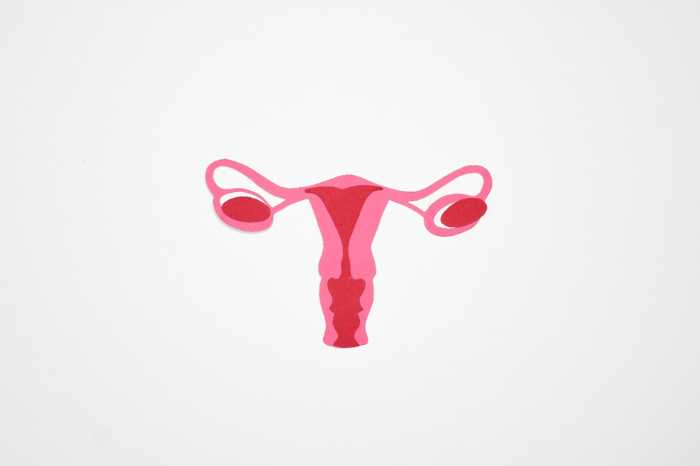A prolapsed uterus is a condition that affects women of all ages. It occurs when the ligaments and muscles that support the uterus become weakened. It can cause significant pain and discomfort; in some cases, it can be severe. This article will discuss the causes and effects of a prolapsed uterus. We will also provide information on how to treat this condition.
Causes Of A Prolapsed Uterus
Here are some common causes of Uterine Prolapse;
Childbirth
Childbirth is the most common cause of prolapse. It can lead to weak muscles and ligaments, which cannot support the uterus in its proper position. In addition, a woman adds weight to the baby, and the pressure of childbirth can damage the pelvic floor muscles and ligaments. Therefore, risk of developing a prolapsed uterus.
Obesity
Obesity is one of the primary causes of a prolapsed uterus. The added weight of carrying around extra body fat puts undue pressure on the pelvic floor muscles and the ligaments that support the uterus. As a result, it can cause the muscles to weaken and eventually give way, resulting in the uterus falling into the vaginal canal.
Ehlers-Danlos syndrome
Ehlers-Danlos syndrome (EDS) is a connective tissue disorder that can cause various problems, including joint dislocation, skin fragility, and chronic pain. In some cases, EDS can also cause a prolapsed uterus. A prolapsed uterus occurs when the uterus falls into the vagina, often due to weakened pelvic floor muscles. In severe cases, the uterus can protrude through the vaginal opening.
EDS is thought to play a role in uterine prolapse because it can cause abnormalities in collagen, the protein that gives connective tissue its strength. As a result, the ligaments and muscles that support the uterus may be weaker than usual, increasing the risk of prolapse. Therefore, if you have EDS and are experiencing pelvic floor problems or uterine bleeding, it is essential to see your doctor for a complete evaluation.
Repeated Heavy Lifting

Another common cause of prolapse is repeated heavy lifting. The pressure that is placed on the pelvic floor muscles and ligaments can eventually lead to weakening and eventual collapse. It is often seen in women who work jobs requiring them to lift heavy objects regularly.
Menopause
Menopause occurs when the ovaries produce less estrogen and progesterone, and the follicle-stimulating hormone (FSH) level increases. The drop in estrogen levels causes the lining of the uterus to thin, making it less able to support the weight of the uterus. Progesterone levels also drop, relaxing the ligaments and muscles supporting the uterus. It can cause the uterus to sag or droop into the vagina resulting in pelvic organ prolapse.
Pelvic Floor Prolapse
Pelvic floor prolapse is when the muscles and tissues supporting the pelvic organs weaken and stretch, causing the organs to drop down. Pelvic floor prolapse is a common cause of prolapsed uterus. The uterus is a muscle and structure that supports the pelvic organs, so when these pelvic muscles and structures weaken, the organs can drop down into the vagina or outside the body.
Pelvic floor prolapse is a serious condition that can cause pain and discomfort. Pelvic floor prolapse can be caused by pregnancy, childbirth, menopause, or chronic coughing or constipation. If you think you may have pelvic floor prolapse, it is essential to see your doctor for treatment. Pelvic floor prolapse can be treated with lifestyle changes, pelvic floor exercises, medication, surgery, or a combination of these treatments.
Age

Age is often a cause of prolapsed uterus. The older a woman gets, the more likely she is to experience this problem. The uterus is held in place by several different muscles and ligaments. These muscles and ligaments can weaken over time, particularly if a woman has had multiple pregnancies. As a result, it can cause the uterus to sag or drop down into the vagina.
Age-related changes in the pelvic floor can also contribute to the prolapsed uterus. Women may lose some of the fatty tissue supporting pelvic organs as they age. It can lead to pelvic floor relaxation, making it more difficult for other pelvic organs to stay in place. uterine prolapse occurs in such times.
Chronic Coughing Effects
Chronic coughing can have several different effects on the body, and one of the potential complications is a prolapsed uterus. Coughing can significantly strain the muscles and ligaments that support the uterus; over time, this can cause the organ to slip out of place or other diseases. In severe cases, the uterus can become completely displaced, protruding through the vagina. Uterine prolapse diagnosed by a doctor can reduce chronic effects.
Effects Of A Prolapsed Uterus
Urinary Incontinence
A prolapsed uterus often causes urinary incontinence. The decreased support to the pelvic organs from the ligaments and muscles that hold them in place can cause the organs to slip down into the vaginal canal. It may cause dribbling or leakage of urine when coughing, laughing, sneezing, or other physical activities.
The prolapsed uterus may also press on the bladder, making it difficult to empty. As a result, women with a prolapsed uterus often urinate more frequently and may wake up several times during the night to urinate.
Constipation
Constipation is one of the most common side effects of a prolapsed uterus. It occurs when the tissue that makes up the uterus wall begins to sag or bulge into the vaginal canal. It can pressure the rectum and colon, making it difficult to have a bowel movement. Constipation can also occur if the prolapse is severe enough to block the vaginal opening. well, there are various constipation home remedies.
Sexual Dysfunction
Sexual dysfunction is a common cause of prolapsed uterus. The main symptom of the prolapsed uterus is pelvic pain during sexual intercourse. This pain is caused by the pressure of the uterus on the pelvic organs, which can lead to sexual problems such as pain during sex, difficulty becoming aroused, or an inability to reach orgasm.
Vaginal Bleeding

The uterus is a woman’s reproductive organ, prolapsing when it falls from its normal position in the pelvis. Vaginal bleeding can occur when the prolapsed uterus presses on the blood vessels in the vagina.
It can cause the vessels to break, resulting in bleeding. Vaginal bleeding may also occur if the prolapsed uterus rubs against the vaginal walls. It can cause irritation and inflammation, which can lead to bleeding.
Backache
The uterus is a weight-bearing organ, and its position in the pelvis can pressure the nerves and muscles of the lower back. In addition, the ligaments that support the uterus can become stretched or strained, leading to pain.
Back pain is often worse when the uterus prolapses during pregnancy or after childbirth when the extra weight of the baby puts additional strain on the pelvic floor muscles. Backache can also be aggravated by standing for long periods, lifting heavy objects, or coughing.
Conclusion
A prolapsed uterus is a condition that can cause several different symptoms. These symptoms can range from mild to severe and can significantly impact a woman’s quality of life. If you think you may have pelvic floor prolapse, it is essential to see your doctor for treatment. Pelvic floor prolapse can be treated with lifestyle changes, medication, surgery, or a combination of these treatments.
